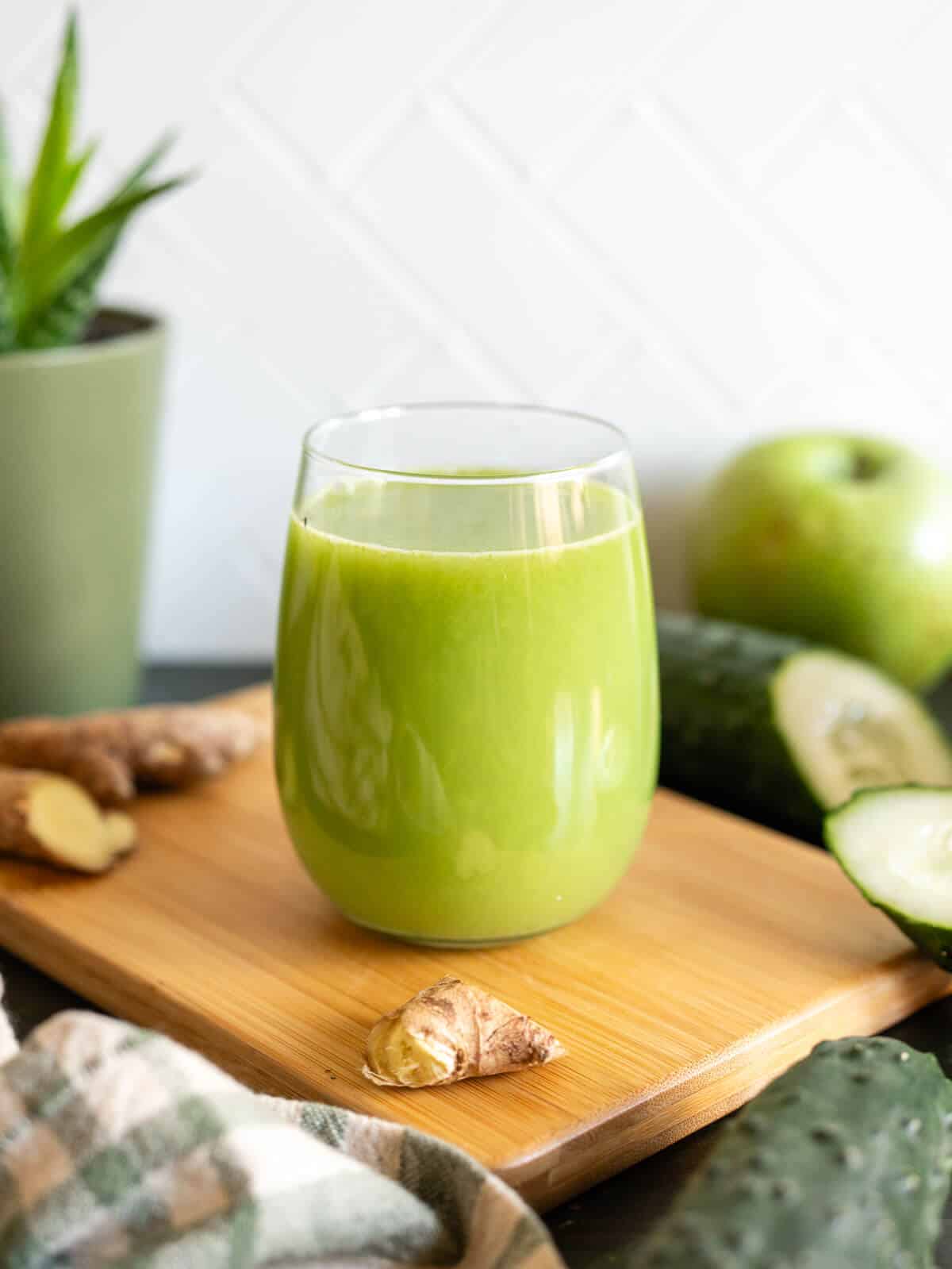Contents
- 1 The Concept of Juicing
- 2 Is Juicing Good for Fatty Liver? Myths and Facts
- 3 Benefits of Juicing for Fatty Liver
- 4 Best Fruits and Vegetables for Juicing in Fatty Liver Management
- 5 Key Nutrients in Fruits and Vegetables
- 6 Risks and Considerations
- 7 Comparing Juicing with Other Dietary Approaches
- 8 Recommendations from Healthcare Professionals
- 9 Conclusion
The Concept of Juicing
Benefits of Juicing for Fatty Liver
Juicing can be helpful for people with fatty liver disease in several ways:
- Packed with Nutrients: Juices from fruits and vegetables are full of vitamins, minerals, and antioxidants that can help your liver work better. These nutrients support the liver in cleaning your blood and breaking down fats.
- Helps in Detoxification: Your liver is the main organ that cleans out toxins from your body. Drinking fresh juice can help this process by providing the liver with the nutrients it needs to function effectively.
- Can Reduce Inflammation: Many fruits and vegetables have anti-inflammatory properties. Since fatty liver can be linked to inflammation, juices made from these foods can help reduce it.
- Aids in Weight Management: Juicing can be a part of a weight loss diet if the juices are low in sugar and calories. Losing weight is really important in treating fatty liver because it helps decrease the amount of fat in your liver.
- Encourages Healthy Eating Habits: Starting to juice can motivate you to make healthier food choices overall, leading to better liver health.
However, it’s important to remember that juicing should be one part of a balanced diet. You still need to eat whole foods, especially those high in fiber, to keep your digestive system healthy. Also, avoiding too much fruit juice is important because it can be high in sugar, which isn’t good for your liver. Instead, focus on vegetable juices and include only a small amount of fruit for flavor.
Best Fruits and Vegetables for Juicing in Fatty Liver Management
Vegetables:
| Vegetable | Benefits |
|---|---|
| Leafy Greens (Spinach, kale, Swiss chard) | High in antioxidants, reduce inflammation and liver fat |
| Beets | Boost liver function and blood flow, rich in antioxidants |
| Carrots | Provide beta-carotene, which supports liver health |
| Broccoli | Aids in liver detoxification with beneficial compounds |
| Cabbage | Supports liver detoxification, aids in weight management |
| Artichokes | Promote liver health and bile production |
| Asparagus | Helps in flushing out toxins from the liver |
| Garlic | Activates liver enzymes, helps in toxin removal |
| Ginger | Anti-inflammatory properties, supports digestion |
Fruits:
| Fruit | Benefits |
|---|---|
| Lemons | High in vitamin C, enhance liver detoxification enzymes |
| Apples | Contain pectin, aid in liver cleansing |
| Berries (Blueberries, cranberries) | Antioxidant-rich, protect the liver from damage |
| Grapefruit | Improves liver fat metabolism through naringenin |
| Avocado | Contains healthy fats, compounds that protect the liver |
| Papaya | Assists in breaking down waste products in the liver |
Key Nutrients in Fruits and Vegetables
Vegetables:
| Vegetable | Key Nutrients |
|---|---|
| Leafy Greens | Vitamins A, C, K, iron, antioxidants |
| Beets | Betaine, folate, manganese, fiber |
| Carrots | Beta-carotene, vitamins A, K, and C, fiber |
| Broccoli | Glucosinolates, vitamins C and K, fiber |
| Cabbage | Vitamins C and K, folate, fiber |
| Artichokes | Cynarin, inulin, fiber, vitamins C and K |
| Asparagus | Fiber, folate, vitamins A, C, E, and K |
| Garlic | Allicin, selenium, vitamins C and B6 |
| Ginger | Gingerol, magnesium, potassium |
Fruits:
| Fruit | Key Nutrients |
|---|---|
| Lemons | Vitamin C, flavonoids, limonene |
| Apples | Pectin, vitamin C, potassium, quercetin |
| Berries | Anthocyanins, vitamin C, manganese |
| Grapefruit | Naringenin, vitamin C, lycopene |
| Avocado | Healthy fats, fiber, potassium, vitamin E |
| Papaya | Papain, vitamin C, beta-carotene, potassium |
These fruits and vegetables are not only beneficial for liver health due to their nutrient content but also for their ability to support overall bodily functions, including detoxification processes, inflammation reduction, and metabolism improvement.
Risks and Considerations
Risks and Considerations of Juicing for Fatty Liver:
| Category | Risks | Considerations |
|---|---|---|
| Sugar Intake | High fructose from fruits can increase liver fat and worsen insulin resistance. | Focus on vegetables more than fruits; use fruits sparingly to minimize sugar intake. |
| Nutrient Balance | Juicing often lacks proteins, fats, and fiber, leading to potential nutrient deficiencies. | Ensure a balanced diet including whole foods to maintain nutrient diversity. |
| Calories | Juices can be high in calories, leading to unintentional weight gain. | Be mindful of calorie intake and prefer juicing as part of a meal, not a meal replacement. |
| Toxins | Concentrated juices might increase exposure to pesticides and chemicals in non-organic produce. | Choose organic produce when possible to reduce toxin exposure. |
| Detoxification | Misconception that juicing can detoxify the liver may lead to neglecting effective treatments. | Understand that the liver naturally detoxifies the body; focus on proven treatments and lifestyle changes. |
This table provides a clear view of the potential risks associated with juicing, especially for individuals with fatty liver, and the important considerations to keep in mind to ensure that juicing contributes positively to liver health.
Comparing Juicing with Other Dietary Approaches
Balanced diets like the Mediterranean or plant-based diets often yield better long-term results in managing fatty liver compared to short-term juice cleanses.

